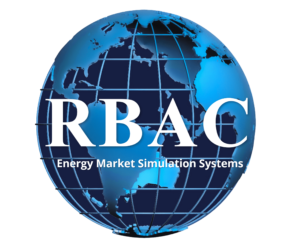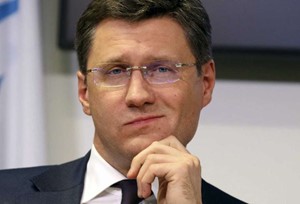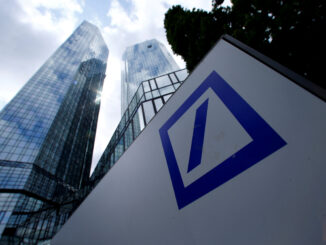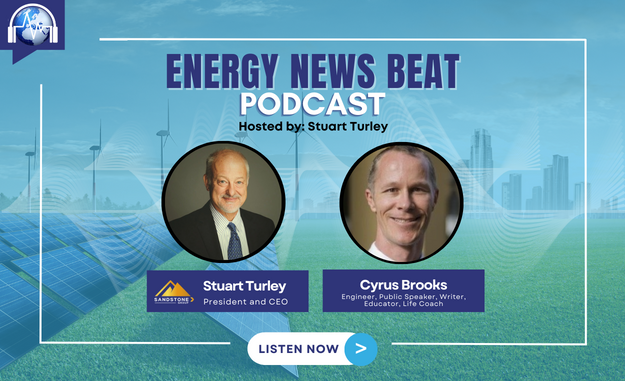
Sometimes we must stand up and point out hypocrisy and apparent racism. This interview with Cyrus Brooks, with RBAC, Public Speaker, Writer, and Humanitarian, was a great conversation covering just that. While I was live in the Permian Basin International Oil and Gas show, Cyrus was in Cape Town, South Africa involved in the African Energy Week 2023 (AEW).
The African Energy Week is critical for the continent, and its main focus is the African Energy Renaissance by reducing energy poverty, people, planet, industrialization, and free markets. Their goal is to “Make Energy Poverty History by 2023.” What a fantastic goal and we need to help make this happen.
Highlights from the African Energy Week News
African countries have long stated that there needs to be a just and inclusive energy transition, one that takes into account Africa’s priorities. Joseph McMonigle, Secretary General of the International Energy Fund, explained that, “There is a disconnect between the developed world and the developing world, particularly Africa. We need to recognize that the priorities here are much different. We need a multidimensional approach. There should be different pathways to providing energy security and economic development and pursuing a transition.”
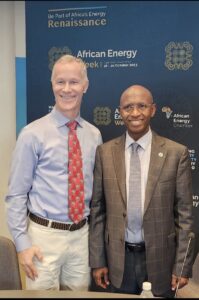
Dr. Farouk Ibrahim, Secretary General of the African Petroleum Producers Organization, echoed these remarks. He said, “A defining moment for us in Africa is going to be at COP. Success at COP28 is not going to be defined by how much the industrialized and developed countries of the north say they are going to give us and help us with the energy transition.”
Dr. Ibrahim drew attention to the central role technology will play in defining Africa’s energy transition. Rather than abandon the resources that will drive economic growth, Dr. Ibrahim believes that, “We should use technology and remove 500 megatons [of emissions], so you enable the countries of the south to use the type of fuels (oil and gas) to develop and get to where the developed world is today.”
I had the opportunity to interview Dr. Ibrahim on the day after this interview with Cyprus, and it was fantastic hearing his views on Africa first and that energy is a critical humanitarian issue. As Alex Epstein said in his speech at the conference, the financial and energy direction of the West towards Africa is like environmental racism.
The ENB Conversations with Stu Turley Podcast with the Guest Cyrus Brooks from RBAC.
The separate interview with Dr. Ibrahim and Cyprus will be released as soon as the staff can get it through production. We will follow up with the Secretary-General next month and get his feedback from COP28.
Thank you, Cyrus, for setting up the podcasts from Africa and your dedication to getting the humanitarian story elevated so we can help eliminate environmental racism and energy poverty.
Please follow Cyrus Brooks on his LinkedIn HERE:
Follow the global energy and natural gas markets information from RBAC HERE: RBAC.com
The full transcript below is edited only for grammar, and we disavow any errors unless it makes us sound smarter or better looking.
Stu Turley, CEO, Sandstone Group [00:00:05] Oh, everybody. Welcome to the Energy News Me podcast. My name is Stu Turley, CEO of the Sandstone Group. I used to be a game show host at one time, but I’m here at the Permian Basin International Oil and Gas Show and I’m here at the Air Compressor Solutions booth. It is just crazy. You can see the old truck back here behind me. And I’ll tell you what, this podcast, is probably one of the most important that we’ve talked about in a long time. I’ve got an old friend here, and I’ll tell you what, Eric Brooks over at RBC and I mean his dad, I get to interview him tomorrow, and they are an international natural gas evaluation, and they’ve got software for long-term contracts, and everything else. And I’ve just really enjoyed being able to get in me. Cyrus Cyrus, welcome from Africa. How are things there?
Cyrus Brooks, Engineer, Public Speaker, Writer, RBAC [00:00:57] Oh, they’re very definitely heating up, I guess you could say. Yeah. You know, here it is, the springtime heading into the summer. So. But yeah, it’s it’s really, actually, it’s really nice and windy in Cape Town, South Africa.
Stu Turley, CEO, Sandstone Group [00:01:14] You’re in Cape Town?
Cyrus Brooks, Engineer, Public Speaker, Writer, RBAC [00:01:15] Yes, I’m in Cape Town, which is in the southeast. It’s actually still on the Atlantic, but not far from where the Indian Ocean meets the Atlantic, right near the bottom of the world.
Stu Turley, CEO, Sandstone Group [00:01:28] Is it now? How long was the flight out there, Cyrus?
Cyrus Brooks, Engineer, Public Speaker, Writer, RBAC [00:01:33] Oh, you know, I went from Houston to Atlanta and on to Cape Town. That was 18 hours. So with one and a half hours stopover. So it was quite something.
Stu Turley, CEO, Sandstone Group [00:01:43] Oh, my goodness. Now, why are you there, Cyrus?
Cyrus Brooks, Engineer, Public Speaker, Writer, RBAC [00:01:46] Well, this week is Africa Energy Week. And, you know, their tagline and our motto here is to make energy poverty history, which really goes right into, you know, the basic purpose of all energy companies is to supply energy. You know, no matter how much money people want to make and all of those things that people think are the real purpose, but actually, we really want to supply. I mean, that’s our goal, is to supply that energy that people are going to use now. And we know as long as we do that, we still have a great future supplying that energy. So what the difference is, is that if half of Africa gets one out of every two, people don’t have electricity like they do electricity.
Stu Turley, CEO, Sandstone Group [00:02:38] And 1.
Cyrus Brooks, Engineer, Public Speaker, Writer, RBAC [00:02:39] To 2 people do not have electricity access to it. Like.
Stu Turley, CEO, Sandstone Group [00:02:45] You know, Cyrus, you and I have talked about this and this is heading up where my passion is. Everybody needs to deliver the lowest kilowatt per hour to all citizens of the planet and allow them to eliminate poverty through low-cost, sustainable energy. Now, Cyrus, you and I have also talked about using local natural resources to reduce the impact on the environment. Tell me what’s going on and what’s the temperature there with everybody, all the leaders that are there?
Cyrus Brooks, Engineer, Public Speaker, Writer, RBAC [00:03:17] Well, it’s really interesting to hear people from Europe and then hear people from Africa. And there’s just a, you know, a bit of a chasm between the two in some aspects. And, you know, African leaders are saying very specifically that, you know, the resources of Africa should benefit Africans. I mean, Africa has natural gas. Africa has oil, a lot of oil. Africa, you know, could easily do 7 million barrels a day. Africa has you know, Africa has minerals. Africa is all it has. You know, minerals such as cobalt, which as we know is essential for EVs electric vehicles. And it has so much in the way of resources. And, you know, it’s it’s not just a you know, a supply store, but that’s the message anyway. It’s not this is not just a supply store for everybody else. You know, they have their own needs and they want, you know, if people come and they want to make use of their resources, well, they want to make sure that, you know, the way that contracts are and are that it benefits the people to develop their resources, their economic development as well.
Stu Turley, CEO, Sandstone Group [00:04:52] You know, it seems like and from what I’m seeing from the international side of things, on the international. And that the world, not the World Economic Forum at the World Bank, is loaning money only for renewable projects. And we know that we’re seeing a real problem with solar panels. After five years to ten years, they’re having to be replaced and then they can’t be recycled. And then you need a lot more money for the grid, and it’s just a lot higher cost for electricity, for even wind or solar. So what are they saying about getting no money? Really? Access is money available for natural gas pipelines, coal plants, for natural gas power plants in Africa.
Cyrus Brooks, Engineer, Public Speaker, Writer, RBAC [00:05:43] Yeah, that’s a that’s a very good question. So investment and foreign investment came up quite a bit at this conference. I’ll tell you something interesting, just to my last point, if I go back to it, the president of Namibia, which is next, next to South Africa, and you know, it’s the president there. He gave a speech and he said something very smart. He said that, you know, the benefits from African resources must benefit Africa. I mean, actually, that’s really no different than than any local community, you know, saying that, hey, if you want to build something in my backyard, it should benefit me to me or the community, etc.. You know, whether it’s a transmission or a natural gas pipeline or anything. Right. Right. So. So it’s not even a big ask. But something else he said was really interesting. He said, we cannot allow and this goes to what you’re saying about finance. We cannot allow climate change to be weaponized. Wow. Wow. What a line that is. That weapon.
Stu Turley, CEO, Sandstone Group [00:06:53] Cannot stop and.
Cyrus Brooks, Engineer, Public Speaker, Writer, RBAC [00:06:55] Allow climate.
Stu Turley, CEO, Sandstone Group [00:06:57] Global climate change to be weaponized. Wow.
Cyrus Brooks, Engineer, Public Speaker, Writer, RBAC [00:07:00] I like that. So. So. Yeah. And the point is, you are right. They definitely there definitely has been a constraint on finance by, you know, the African Development Bank, the IMF, or other banks, European Central Bank, like these kind of banks. They have, you know, these various commitments toward net zero and emissions and all this kind of thing. Right. So there is that. And you could say, that African leaders are actually quite unhappy with this kind of role. And I mean, there is if you consider, okay, let’s take the view that CO2 is a pollutant. You know, let’s just pretend for a moment that it’s like dumping paint right in the gutter. Okay. If you take that view that CO2 is a pollutant, just like dumping paint, right? You would go to that company and you would say, hey, you need to clean it up. Right. It’s you do that. You have to clean it up. The evidence is right there. And I can see that paint, you know, flowing down the gutter.
Go clean it up. Don’t talk to me about it, you know, and don’t complain about my pollution if you’re going to keep doing it. Now, that’s the other thing, is that Africa has if you look at CO2 as a pollution, I mean, if you do, Africa has contributed something like 3% or 4.3%, Like it’s really minuscule. It’s nothing. So you have people, you know, who have basically developed their economies have been, quote-unquote, polluting and they have been polluting. But if you say, oh, okay, let’s say just they’ve been emitting CO2 for. Right. You know, for 150 years and then, you know, saying, you know, as a banker, I’m not going to lend it to you because it’s going to add emission is a little bit unfair because, I mean, this is also it’s like, hey, you know, you didn’t have this, you know, I’m not going to lend it to you for other people. Did you? I mean, it’s not like they weren’t lending it to the West early on. And so I think it’s pretty fair. There is they’re kind of saying two things that are really interesting. You know, what is in the West, clean up their CO2 and, you know, and then that will also make room. That’s one of the interesting comments. They said, you know, clean up 20% of the CO2 you put out there and that makes room for Africa to develop. You know, that would be one thing. So, I mean, there the.
Stu Turley, CEO, Sandstone Group [00:09:45] Reports are I mean, I’m sorry words me this you’re that I’m sorry you know me well enough know that I’m getting excited about a couple of things you just said. So when we talk about China and the Western world, both. Developed worlds polluting so much. And if CO2 is taken as such, it a pollution. What about China? China has announced that they are doing it. Over 300 coal plants are already permitted and in the pipeline for production. Unbelievable amount of gigawatts going on for coal. So why can China put all of this, Colin? Why can Germany now start taking down wind farms so they can open back up a coal plant and then we’re handicapping Africa and saying you have to go renewable energy, which has to have fossil fuels in order to work? Yeah. Are they talking about China?
Cyrus Brooks, Engineer, Public Speaker, Writer, RBAC [00:10:53] Question. Well, you know, it’s definitely that. Yeah, actually, definitely all that was mentioned about the coal in China and, while frankly, to be honest, I don’t blame China, you know, I mean, what can you say? Except they are trying. But this is a weird kind of thing. And when Alex Epstein, who wrote the book in Our Fossil Future and the Moral Case for Fossil Fuels, Alex Epstein spoke yesterday. And oh, cool. Yeah, he said something quite interesting, which was I mean, he called this he called this very pointedly. He said this is like environmental racism. I mean, this is really I love the idea. Yeah. Honestly, I mean, the idea that one group of people can, you know, basically make coal plant after coal plant after coal plant with practically no protest. I mean, honestly, if the world wanted to protest against it against China grain, they could, you know.
Stu Turley, CEO, Sandstone Group [00:12:01] They wouldn’t get any money from the Belt and Road. So.
Cyrus Brooks, Engineer, Public Speaker, Writer, RBAC [00:12:05] Well, you know, but I mean, people could stop buying things from there. They could. I mean, all sorts of things. They could they could commit sanctions, and tariffs. I mean, they could do all sorts of things, which they will not do, you know because they are intertwined with economic rights. They are you know, they benefit from the relationship from China, though. So then, why are they so willing, so unwilling to be righteous about China? Because it’s it it really goes against their own interest. Right. And so therefore, it comes across that, you know, this this resistance towards fossil fuel use in Africa is, you know, borne out of a lot of self-interest.
Stu Turley, CEO, Sandstone Group [00:13:01] Well, I had the fortune of interviewing Alex Epstein twice on the podcast, and I enjoyed his passion and not only interviewing him. Chris Wright from Liberty Oil. Liberty Frank has also been the humanitarians, and quite honestly, they were my inspiration for trying to take this passion up for being a humanitarian, being energy agnostic, except let’s do the lowest impact on the environment, and that means natural gas. And we know that COP 28 is coming around the corner, and I’m hearing rumblings. I mean, we have M.D.s, you know, the Saudi prince going to be there. Cyrus, And there are 140 major world leaders going to be at 28. And they’re now saying that oil, natural gas, and nuclear are going to be the prince of the ball there in order to do that. And I’m where I’m going with this conversation is how is the conversation at this energy conference in Africa with nuclear? Is nuclear coming up? And as natural gas coming up is really the bridge to prosperity?
Cyrus Brooks, Engineer, Public Speaker, Writer, RBAC [00:14:23] Yes, nice gas is increasing. It’s probably almost two-thirds of the conference is focused on natural gas. Nice. And, you know, there’s a reason for that. Africa has vast gas resources and potential, and the world is also calling for Africa’s gas for their use. Right. So, plus, gas has many more uses than just. More heating and gas-fired power generation. You have fertilizer, you have fertilizer, you have you know, you can make hydrogen steam reformation. You can, you know, you can do a lot of things. I mean, the basics of ethylene and plastics. I mean, there’s so much you can do with that. You can make compressed natural gas for cars as a cleaner fuel. I mean, and Africa does that, especially in Nigeria and Egypt.
Stu Turley, CEO, Sandstone Group [00:15:26] And propane and everything else.
Cyrus Brooks, Engineer, Public Speaker, Writer, RBAC [00:15:28] And propane. And so LPG is part of this conference as well. And these things are scalable. You know, you can also have cleaner cooking, you know, and this kind of thing, I mean, there’s, you know, it’s as you said, I mean, there’s nothing wrong inherently with, you know, solar power or wind power. But like anything, they have their own pros and cons, and the peculiarity of electricity is that it’s not easily storable, therefore it must be on demand. And as we saw in Texas on Friday with a full lunar eclipse, you saw the solar because the eclipse was in the middle of the day, and you saw the solar dropped almost immediately to nothing. And it just, well, it dropped it as a like a steep cliff.
Stu Turley, CEO, Sandstone Group [00:16:25] And the balancing authority on that side is the balancing authority for ERCOT. I’m sure they had to put the brakes on because they had to spin up natural gas or coal in order to be ready for that. And you just nailed it that, you know, the grid can have standby wind or standby. I just want to give a shout-out to you as I was coming through to my office in Abilene, the wind farm on the left side was there’s just wind farm after wind farm after wind farm. And then, over on the right-hand side, one has been abandoned.
There is a wind farm right outside of Abilene, Texas, and the blades are falling off, and they are having some serious problems. Not only are there serious problems with that, the farmers in Germany and farmers in the U.S. are now having to look at 25-year contracts, and these wind companies are backing off their abandoned turbines. And now you may have a ranch with two or 300 wind farms sitting out there, and they cannot even use them as a ranch anymore. So that is something that we need to also when you’re talking to the African leaders, the presidents, the general, and folks there, just like your company, is so good about forecasting pricing for natural gas on the global market, we need to take a look at wind farms and then absolutely go away at the end of 25 years. Who’s going to haul this crap out? And I mean, this is terrible for not only Africa but for Europe and the United States, and nobody’s talking about this in Texas, by the way. I love me from Texas. They are really focusing and putting money into the abandoned orphan wells because, quite honestly, the oil and gas industry did not do a great job in the past. But over the last ten 15 years, the great oil and gas companies have done a phenomenal job in ESG in getting things environmentally sound. Where’s the renewable market on this? And I want to hear while you’re at that conference if you can bring that up and try to ask some folks, are there long-term contracts for solar panels? Because Cyrus solar panels are piling up. We’re shipping our solar panels that are no longer usable to other countries and they’re toxic waste. How is that being discussed at these kinds of conferences? Yes, it makes sense.
Cyrus Brooks, Engineer, Public Speaker, Writer, RBAC [00:19:07] Yeah. I only know that Africa doesn’t want that kind of stuff at all. No, but I’ll tell you something they are interested in. What’s that? What they are interested in is Creating a value chain. Creating more. So. Okay, so here’s what you do, right? Right. If you have a process that has five steps, right? The first step is raw material. If you sell the raw material at the first step, then you lose a lot of value. Right. You lose a lot of value added. And you know, you only have jobs related to the extraction. So you might have some jobs related to oil or gas extraction or mining. Right. And which is.
Stu Turley, CEO, Sandstone Group [00:19:55] Child abuse in the case?
Cyrus Brooks, Engineer, Public Speaker, Writer, RBAC [00:19:58] Well, all. All the cases of that. But the main point is that what Africans want is Africans want to add industry. So let’s say, you know. You know, yeah. So let’s say you take your, minerals, and you smelt them, and you process them. Well, now you have two industries, right?
Stu Turley, CEO, Sandstone Group [00:20:18] Oh yeah.
Cyrus Brooks, Engineer, Public Speaker, Writer, RBAC [00:20:20] You see what I mean? And so now you’re adding jobs, and you’re adding now you can you that the margin, you can sell that material for increases a lot.
Stu Turley, CEO, Sandstone Group [00:20:29] Absolutely. In jobs and.
Cyrus Brooks, Engineer, Public Speaker, Writer, RBAC [00:20:31] So.
Stu Turley, CEO, Sandstone Group [00:20:31] And prosperity.
Cyrus Brooks, Engineer, Public Speaker, Writer, RBAC [00:20:32] That’s right. And so you start to create jobs you create and as you create industry, you also have more money, which also means you can afford more. And eventually, you know, this. This also means there is a market there for, you know, Europeans and Asians and Americans to sell to. Right. And not just, you know, the cheapest phones they can buy, the most expensive everything, because they have, you know, the standard of living that we have.
Stu Turley, CEO, Sandstone Group [00:21:00] So this all for years, and I’ve been thinking about this and what’s wrong if you can go through and as you look at getting more energy in solving that one out of two people in poverty, energy, poverty in Africa, what’s wrong with looking at charging export money? I think the West should charge export fees so that we’re paying a higher price for the natural resources out of Africa, with that fund going back to Africa to build their infrastructure. That makes sense.
Cyrus Brooks, Engineer, Public Speaker, Writer, RBAC [00:21:40] Yes. And I think that that, you know, that’s kind of what they’re talking about is right during the agreements so that that it starts to build infrastructure nice And they definitely you know, it’s part of the conversation. So, but it does go back to investment as well, you know, and there’s a lot of issues in Africa or any place where there is, you know, it’s a developing economy. So the administration, you know, even making these agreements even. Even experience and knowledge at the, you know, at the levels at the ministerial levels. Right. If they end up getting advisors, and this came up in the conference, if they end up getting advisors who come from Europe and the US who who have their own agenda right then, then they’re going to start to make agreements towards, maybe they’ll start to make agreements towards the, the Paris Accord or some, some purpose which the West has not, which is really Africa focused.
So, I mean, you know, for example, if you take California and let’s just make an example, you take California, and you go to some, you know, a depressed area like East L.A. or, you know, maybe Watts or South Central, you know, down on Skid Row and all these kind of things. And you want to you’re going to tell these guys, well, we’re going to help your area and we need you. But whatever you do, we must ensure it’s green. And, they would just look at you like you’re crazy. It’s like like we have we have no money. We have lots of crime. We have you know, we have a we have, you know, very low literacy. I mean, we have huge problems to overcome. And you want us to care whether or not we emit CO2. And so, you know, I mean, look, it’s it’s it’s like it’s not that it’s we can’t concern ourselves with climate change. We can’t. But, you know, you know, when you when a guy is starving to death, you don’t talk to him about CO2. You give him food. You know, I mean, this is this is what it’s, you know, so.
Stu Turley, CEO, Sandstone Group [00:23:58] It’s unfair.
Cyrus Brooks, Engineer, Public Speaker, Writer, RBAC [00:23:59] It’s not fair. And not only is it not fair, but really, you know, when you talk to somebody, you should really be asking them what they need. You know, should you should and you shouldn’t be telling them what they need. You should you should be looking and listening.
Stu Turley, CEO, Sandstone Group [00:24:14] You know, I think one of the best things that came out of that thing was everything that we’ve talked about. Cyrus is phenomenal. And I couldn’t be happier that you’re there helping your company and then helping bring back the word. We have to spread the word about helping them out because, selfishly, it will help out everybody else in the global market. And that’s exactly what, yes. RBAC does. You know, your company does look at the global environment and the fiscal responsibility of elevating folks out. And I absolutely love the way that Alex Epstein phrased that, that it is energy, racism by putting that out there that way, we’re not allowing them freedom through fiscal restrictions. And so I’m excited about that. And tomorrow, you have hooked up with Dr. Ibram, and he is the general director of AP. Oh, and I can’t wait to visit with him.
Cyrus Brooks, Engineer, Public Speaker, Writer, RBAC [00:25:18] Yes, he’s the this is the African Petroleum Producers Organization. So he’s is really high level. And this guy is a firebrand talker. I mean, he’s a you know, he’s a real strong advocate for Africa and for African knowledge and for the kids learning, you know, technology transfer. So and also developing African training so and training centers throughout Africa and also Pan African cooperation so all Africans can, you know, rise up and oh fantastic.
Stu Turley, CEO, Sandstone Group [00:25:57] I’ll tell you, I am so excited about about this. And so, Cyrus, how can everybody get a hold of you and your company? And we want to make sure that people can get a hold of you. What’s the best way to get a hold of it?
Cyrus Brooks, Engineer, Public Speaker, Writer, RBAC [00:26:10] Yeah, I mean, go to grab a Seacom. So, you know, and that would be, I guess, where we where do we say we say Romeo. Bravo Alpha. Charlie.
Stu Turley, CEO, Sandstone Group [00:26:23] I think I ordered dot com. Yes, I think it’s fabulous. And I want to give you a shout-out. I didn’t mean to cut you off, Cyrus, but you’re one of the great thought leaders out there. Your whole team over there does a great job with articles, knowledge, and not only me; I am a stalker of you guys in a nice way. I watch you. So, I just want to think that you guys are a phenomenal resource for folks being industry thought leaders. So we got about two more minutes. What are any last words or thoughts for you on this trip that you’re doing in Africa?
Cyrus Brooks, Engineer, Public Speaker, Writer, RBAC [00:26:57] I would say that something really interesting has come, which is that natural gas is going to be a key to the future. You know, whether you call it a low-carbon future or whatever you call it, it’s a lot will be powered by natural gas. It is cleaner. It is going to make cities cleaner and is, you know, cooking more available electricity, more available to all the people of Earth and help companies to make better energy decisions so that it actually benefits everybody in the long run.
Stu Turley, CEO, Sandstone Group [00:27:33] Isn’t that great? Hey, one last question here before we close out. I was visiting with Tucker. He was over at the Propane Council for the United States, and he may be there, Tucker Perkins. And he’s describing propane and compressed natural gas as the last mile. And in Africa, that would absolutely be a great way to get, as you mentioned earlier, people using it. So, natural gas and then staging it out for the last mile. It’d be kind of fun to hear what people’s thoughts are in incorporating those kinds of contracts in there as well because the infrastructure is a lot easier to put in for tanks and those kinds of things as opposed to a pipeline.
Cyrus Brooks, Engineer, Public Speaker, Writer, RBAC [00:28:21] You can find that, you know, you scale it, you scale. They did this in Mexico; you scale it, right? You know, people have the connections in their house so that finally, when the pipelines come, you can put them right in because the house, is already there. You see, you know, it’s a perfect way to make a scalable micro economy, say, I mean, you’ll get off on that one. But yeah, I agree with you. I’m totally with you on that.
Stu Turley, CEO, Sandstone Group [00:28:46] Sounds fantastic, Cyrus. Thank you. From Africa, I’m here in the Permian, and a shout out to our sponsors here with air Compressor Solutions. And hey, I look forward to visiting with you tomorrow. There’s Irish.
Cyrus Brooks, Engineer, Public Speaker, Writer, RBAC [00:28:58] Sounds good. To see.

